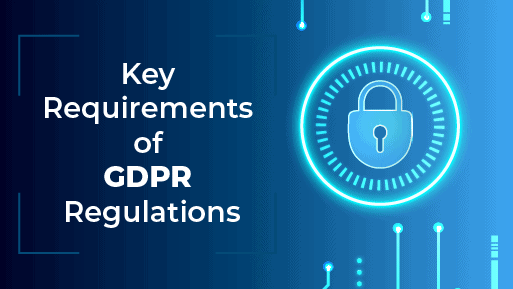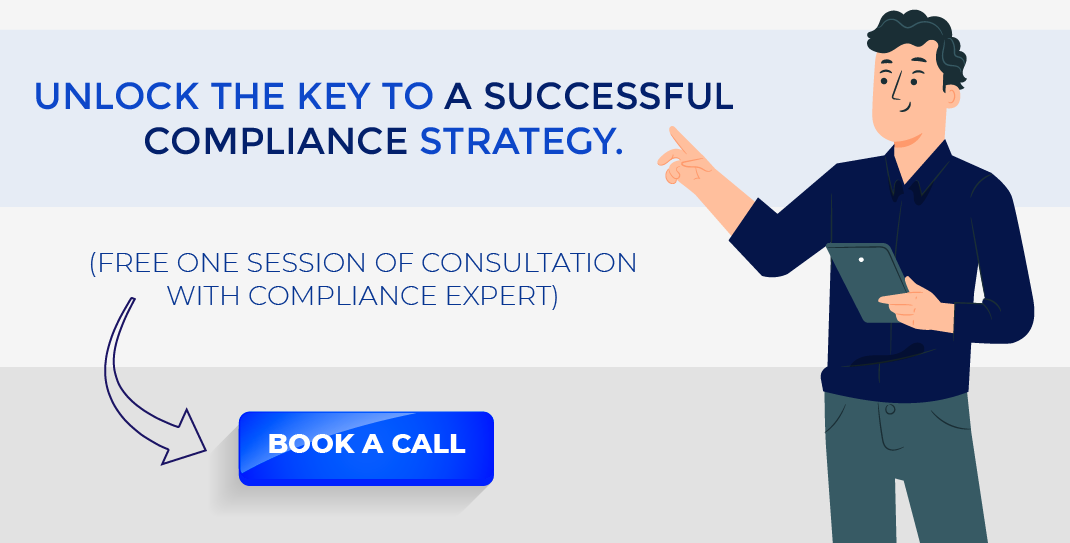The Data Protection Regulation also popularly known as the GDPR Compliance is a set of standards comprising of rules on how companies should process the personal data of citizens of the EU (Data Subjects). The regulation outlines clear responsibilities for organizations to ensure the privacy and security of personal data, and to preserve the rights of the data subjects.
Organizations are required to implement the key requirements of the regulation and demonstrate accountability and compliance with the standard. However, understanding the key requirements and implementing the same can be challenging for organizations.
So, to make things easy and for a clear understanding, we have summarized the key requirements of the GDPR Regulation in this article. So, let us take a closer look at these requirements to see how implementing the same can help organizations achieve compliance.
Table of Contents
What are the GDPR Requirements?
1.Ensure Lawful, Fair, and Transparent Processing
The organizations that process personal data are required to ensure that they perform the processing activities lawfully, fairly, and in a transparent manner. This means that organizations must have a legitimate purpose to process the data, to begin with. Thereafter, organizations must take responsibility for processing the data in a fair manner, based on legitimate purposes. Further, the processing activity conducted should be transparent in a way that the organization informs the data subjects about the processing activities on their personal data.
2.Limitation of Purpose, Use, and Storage
Organizations collecting and processing data must ensure that the said activities conducted should be limited to only the legitimate purpose. So, the collection and processing of the data should only be limited to what is necessary and must be performed only meet the primary purpose and requirement. Thereafter, the collection, use, storage, or processing of personal data must be forbidden. The regulation clearly states that no personal data, other than what is necessary, should be requested or collected. Once the legitimate purpose for which it was collected and processed is fulfilled the personal data should be appropriately deleted.
3.Data Subject Rights
GDPR Regulation outlines a list of data subject’s rights concerning their personal data. Organizations are required to ensure that they have measures in place to preserve the rights of the data subject. On that note, organizations are required to oblige the request of data subjects concerning their personal data in terms of the right to access information, right to rectify information, right to request deletion of data, right to restrict processing, right to data portability, right to object and the rights related to rights related to automated decision making including profiling. Organizations need to ensure that all the requests under these rights are met accordingly, within the stipulated time frame given by the regulation.
4.Data Subject Consent
Organizations that intend to process personal data beyond a legitimate purpose for which the data was initially collected must clearly and explicitly take consent from the data subject. Once collected, this consent must be documented and also ensured that there are measures in place to meet the request of the data subject when they wish to withdraw their consent any time in the future. Not to forget, for processing children’s data, GDPR requires the explicit consent of the parents or guardian, especially if the child is under 16 years of age.
5. Privacy by Design
Organizations collecting and processing data must incorporate technical mechanisms in the design of their systems and processes to protect personal data. So, with that, the security and privacy of data that is achieved by default. Organizations are expected to implement data protection and privacy principles at the beginning when establishing and enforcing processes. This is to ensure that data minimization and security measures are well in place to meet GDPR compliance.
6.Data Protection Impact Assessment
Data Protection Impact Assessment is crucial for an organization’s data security program. The assessment typically helps organizations estimate the impact of changes or new actions can have on the security and privacy of personal data. The Data Protection Impact Assessment is an evaluation process that needs to be carried out when initiating a new project or when there is a significant change introduced in the processing of personal data. This could include introducing new processes or changing the existing process that alters the way personal data is processed.
7.Third-Party Data Processing
As stated under Article 28 of the GDPR Regulation, if an organization is processing data through a third party, then it will have to conduct appropriate due diligence on its third-party vendors. This is to ensure that the processing activity performed is as per the GDPR requirements. Not just that, they are required to have an agreement with the third-party vendor to set forth clear terms and conditions of the processing activity and defining responsibilities to ensure accountability of the process.
8.Data Transfers
The Data Controller needs to ensure that the personal data is protected and GDPR requirements are met irrespective of it being processed by a third party. This means controllers have the obligation to ensure the protection and privacy of personal data when that data is being transferred outside to a third party and/or other entity within the same company. For these reasons, organizations must establish a contract agreements with the third party to ensure adherence to the GDPR requirements.
9.Appointment of Data Protection Officer
Organizations must appoint a Data Protection Officer to ensure that the policies, procedures, and processes established in line with the GDPR Regulation are enforced and followed appropriately. Further, the Data Protection Officer will have the responsibility of advising the organization about compliance with EU GDPR requirements and ways to maintain compliance.
10.Awareness and Training
Organizations must conduct awareness and training for employees of the organization to make them aware of the GDPR Regulations and their responsibilities. Regular training ensures that employees remain aware of their responsibilities follow necessary guidelines to maintain compliance with GDPR requirements. This ensures the protection of personal data and the prevention of personal data breaches.
11.Breach Notifications
Organizations are required to notify the supervisory authority of a personal data breach without undue delay and where feasible no later than 72 hours after becoming aware of it. The notification should include disclosure of the nature of the breach, the approximate number of data subjects concerned, and the categories of personal records involved, and other relevant details. Further, the data subject should also be notified about the incident and given details on the nature of the breach and the possible impact of the incident on them. Non-compliance to the GDPR Breach Notification Requirements will result in fines and penalties.
12.Documentation
Article 30 of the GDPR Regulation requires controllers and processors to document records of processing activities. This requirement applies to organizations that deal with personal data and the processing activity that is likely a high-level high risk to the security of the data. Documenting such detail, in general, is considered a best practice and encouraged for all organizations irrespective of whether or not they are technically required to comply. Documentation will also help organizations demonstrate their effort and commitment towards securing personal data. This is critical especially when an incident occurs and there is an investigation on the incident.
The key requirements of Regulation work as a GDPR requirement list for an organization looking to comply with the regulation. However, we also strongly recommend that organizations consult an expert for better understanding and clarity of the regulation. Consultants are professional experts having the knowledge, experience, and expertise for guiding organizations like you on the right path of compliance.
That said, VISTA InfoSec is a global cybersecurity consulting firm having years of experience (since 2014) in this field. Our compliance experts know the right way to navigate through every compliance process and requirement and help organizations achieve compliance. So, if your organization is looking to achieve compliance or just simply needs clarity on the regulation or knows how to meet GDPR requirements can drop us a mail at info[@]vistainfosec.com. For more information about the regulation and latest updates, you can check our Blog section here.
Related Posts:
- Importance Of GDPR In Retail Sector
- GDPR Data breach fines and penalties
- What is GDPR Data Flow Mapping?
- Guide To GDPR Compliance Audit


